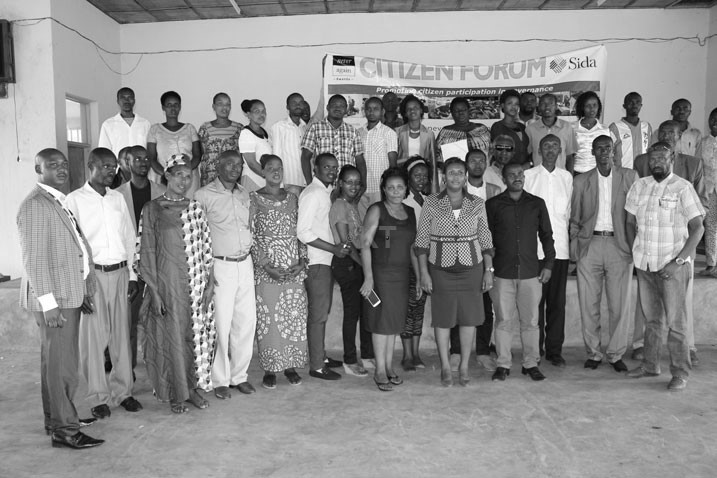On 14th June 2016 Rwanda Governance Board received a delegation of fifteen university students and young professionals from Never Again Rwanda’s Peace-Building Institute. The Peace-Building institute was created by Never Again Rwanda through its peace-building program aimed at bringing together local and international young professionals to examine the reconstruction efforts in Rwanda after the 1994 Genocide against Tutsis. The delegation visited RGB seeking to learn from its role in monitoring governance policies in Rwanda and its role regarding the relationship between Rwanda’s civil society and the government.
“We came to learn from RGB because we want to know more about the role of governance and civil society in peace building process”, noted Eric Mahoro, the Never Again Rwanda Program Director and head of the delegation. At RGB, the team was received by Dr. Félicien Usengumukiza, the head of Governance, research and monitoring department alongside with Gerald Mbanda, the head of Media Affairs and Communication department.
Dr. Usengumukiza briefed the delegation on the mandate of RGB putting an emphasis on governance assessment. “RGB’s researches are some of the tools that we use in assessing the state of governance in Rwanda. Those are Rwanda Governance Scorecard, Citizen Report Card and Rwanda Governance Review,” noted Dr. Usengumukiza. The head of Governance, research and monitoring department also talked about Rwanda’s transformational journey after the 1994 Genocide against Tutsis. He mentioned Rwanda’s political model of consensus and inclusiveness and the role of home grown solutions as some of the choices contributing to the socio-economic transformation of the country.
Talking about media issues and civil society, Gerald Mbanda said that the role of RGB is to develop the two sectors and ensure that they play a positive role in the country’s development. Mbanda also noted that civil society in Rwanda is seen as a partner in the nation building because its projects and programs are complementary to government programs and policies. After discussions, participants said the visit at RGB was so constructive and informative since their hosts responded to their curiosity on Rwanda’s reconstruction journey and the role of governance in the process.


